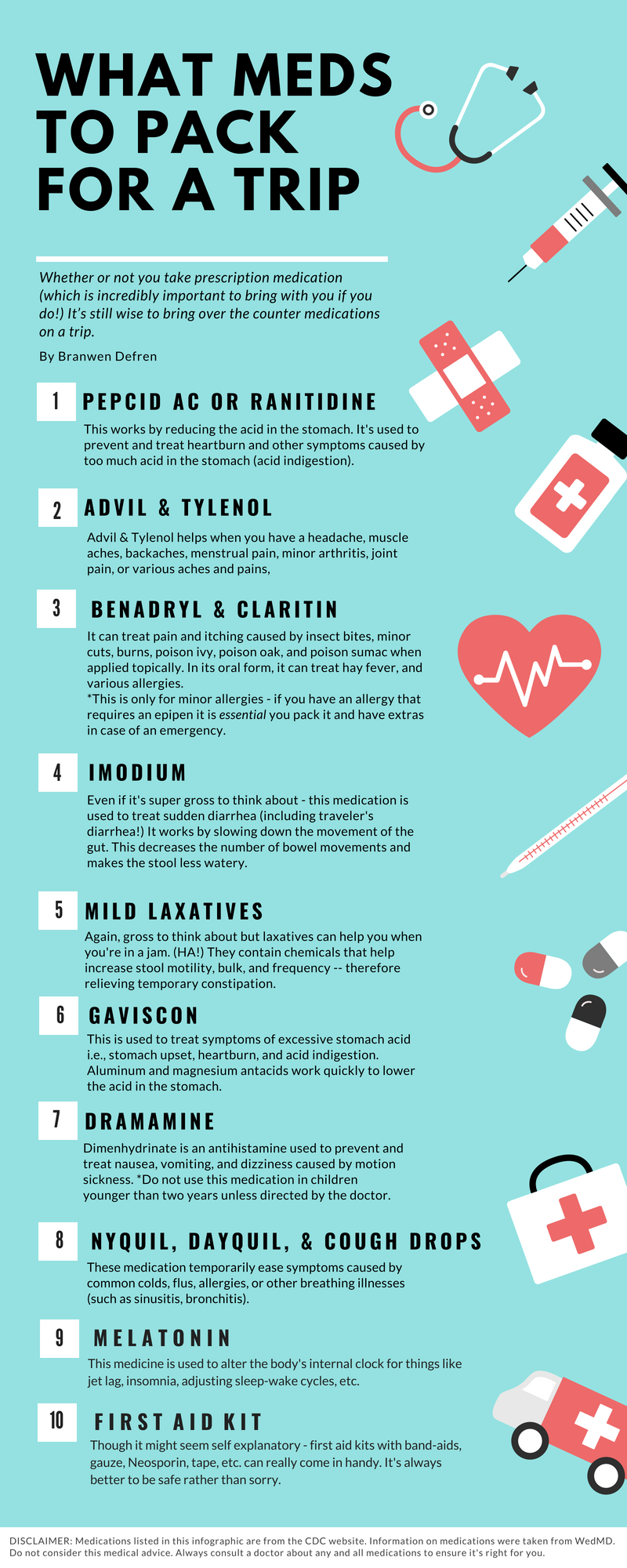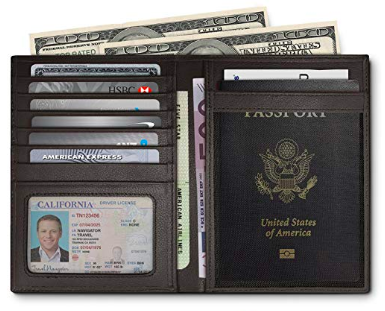TOP 10 TRAVEL TIPS TO BECOME A PRO-TRAVELER
- Branwen Defren

- Aug 29, 2018
- 7 min read
Updated: Sep 16, 2020

I'm sharing my top 10 traveling tips I've learned from traveling to over 35+ locations worldwide, moving cross-country 10 times before graduating high school, and living and working abroad all before my 24th birthday.
TOP TEN TRAVEL TIPS
1. HOW TO KEEP FOOD/DRINK COSTS LOW
When you're sitting down at a restaurant or better yet, checking out a local grocery store for a meal - try your best to stick to a budget of $10 per meal. I picked up this tip from my camp counselor for Costa Rica and Peru and it was such good advice I haven't forgotten it even 10 years later.
Another way to keep costs low is bringing your own water bottle while you travel*. It may seem simple, but if you add up all of the water bottles you purchase during your travels it can get very expensive. Not only is it great for the environment but it saves a ton of money in the long term.
Over the years I've tried nearly every brand of water bottle possible: Nalgene, Camelbak, Nike, Under Armour, Polar... You get the idea. But just a few months ago I came across Liquid Savvy and it's by FAR my favorite - no contest.
It's stainless steel
comes with 3 different lids to choose from
And it truly keeps water incredibly cold or insanely hot for HOURS. I've literally gone to bed and woken up the next morning with my water still ice cold. It's glorious to wake up to.
Depending on exchange rates $10 can either stretch very far or barely anything. Regardless, it's still a good rule of thumb to follow no matter where you are in the world.
However, there are times when you should ignore this rule of thumb. Sometimes there are amazing cuisines that are on the pricier side, and if it's something you really want, and you've been diligent about staying on budget - I say these are the things to splurge on. After all, traveling is all about the experience and food is a huge part of that. I guarantee you'll remember a dish of squirming squid than a cheap bowl of soup any day!
Overall, it's very important to keep a sharp eye on food costs. It's not always something people consider while traveling, but it's actually the biggest money sucker of a trip after airfare, transportation around the location, and accommodation costs. Trimming down on the "little things" can save you a ton down the line.
*Depending on what country you're going to it may be safer to drink only bottled water rather than tap so you won't get sick. The best thing to do is research the country you're visiting before embarking.
2. ALWAYS BRING COPIES OF EVERYTHING
This includes passports, credit card(s), IDs, flight information, itinerary, medical papers (if needed). Leave these papers with a trusted friend or family member at home and in a safe in your hotel room. If you don't have a safe, speak to someone at the front desk of your hotel or hostel, or even bring your own safe!
Having a safe of your own can be a huge comfort and it's something I stash in my bag anytime I go abroad and it's incredibly handy.
Something I've found really helpful is a passport wallet - it holds your plane ticket, passport, cash, cards, hotel key, etc. I also found one that's more "masculine" for those who are interested! It seriously helps having everything in one place while going through security.
You don't want to be that person totally frantic about everything being stolen and scrambling trying to figure out what the F*%K you're going to do. It's always best to be prepared! Travel code: Plan for the worst, hope for the best.
3. WHAT MEDICATIONS TO BRING, EVEN IF YOU DON'T TAKE THEM OFTEN
Whether or not you take prescription medication (which is incredibly important to bring with you if you do!) It’s still wise to bring over the counter medications.
My mom's a nurse and she would do this for me every summer before I went away for camp both abroad and domestic, and it was a HUGE lifesaver – not just for me, but for my friends and fellow campers as well. Let’s face it: everyone is bound to either get sick or hurt, and I’ve always found I like it better to be with than without.
It's especially important to bring these medicines when traveling abroad to countries that speak different languages because it'll be very difficult to identify what you're familiar with. Sometimes they may not even carry things you know and it's best not to experiment on your own so you don’t experience adverse effects.
If you're curious, the top over the counter medications I bring with me are:

Another tip - what I like to do is put all these medications in a large clear ziplock bag with piece(s) of paper listing instructions about what each medicine is and what it’s for so you won't forget if it's not in the original package for space reasons.
4. COMFORT TRUMPS FASHION
Comfortable shoes, clothes, and a light backpack can make all the difference.
This backpack is actually one I'm waiting to get at the moment, but I'm really eager for it to finally arrive because it has a USB charging port, laptop and water bottle holder, an anti-theft pouch for necessities and a lot more. (And it's affordable to boot!)
As for the rest, you don't want to be struggling to pull your heels out of cobblestone streets in Italy, or struggling to lug a massive suitcase full of things through Thailand because you don't have a day pack, or having your whole day ruined because you got dirt sprayed over your favorite outfit in Seattle.
You're gonna get messy no matter what so you may as well be comfortable.
5. WHAT YOU SHOULD OVERPACK
After two instances of my underwear getting lost (...long stories I won’t get into), I personally always pack more undergarments than I need - at least 3-4 days worth.
Underwear is light and doesn’t take up much room in your pack (and personally I think you feel a lot less dirty re-wearing clothes when at least your undergarments aren’t dirty too!)
6. WHEN IN DOUBT, DO WITHOUT!
A very common mistake even experienced travelers can make is overpacking.
Of course this varies depending on length of time and weather, but typically all you need for a week vacation in typical 70 °F (21 °C) is:
1 pair of pants, like jeans, khakis or leggings
2 pairs of shorts
2-3 regular shirts
1 nice shirt/dress
1 Sweater
Rewearing clothes is key and honestly, nobody will notice, I promise! If you do wind up needing more clothes you can always shop around.
It's also imperative to pack 1-2 days worth of clothes in your carry-on item. I can't stress this enough. I'll tell you why this is so important - while my best friend and I traveled to Peru for 3 weeks, it took over a week for her to get her luggage so she was stuck wearing mine and various items she picked up in remote stores.
Please believe me, it happens and you'll be grateful for the hindsight!
7. ROLL YOUR CLOTHES FOR MAXIMUM PACKING SPACE
While you’re packing these clothing items, ROLLING clothes is a huge space saver. It's a life changing hack.

It truly makes a difference and allows you to make room for the things you really want to bring back (like souvenirs!)
Even better, packing cubes are incredibly helpful too and can save you even more space. These cubes are so useful and affordable, Buzzfeed has even written about how awesome they are!
8. ASK ALLLLLL THE QUESTIONS
Whether you do a walking tour, go on a hike with a local, meet people in your hostal or hotel, or go on a group excusion - don't ever be shy about asking questions. Ever.

It's important to remember that in all likelihood, you’ll never see these people again so you may as well get your money’s worth. Pester tour guides, locals, servers, hotel staff, or anyone you think has the information you want. Ask about anything and everything you’re curious about. (I mean don't be annoying or anything, just be human and curious - people typically like to talk about themselves).
People who live in the area you're visiting or have been there before can give you the best tips about things to do, places to see or avoid, and the best places to eat! Locals are by far the best resource.
9. BE DILIGENT ABOUT YOUR SURROUNDINGS
Keep an eye on where you are and do your research beforehand.
I do sadly have to point out that this advice is especially important for women to be cautious about. Asking yourself, locals, and hostel staff questions like “is it safe to walk around at night in X area?”, “what areas should I avoid?”, or “Is it safe for women to walk around on their own?” while annoying and frustrating to have to ask, is still imperative because it could end up being life saving. Some places are more dangerous for one sex than the other and it’s wise to be aware of the culture and how you should dress/act in public, etc.
It's also important to ask locals and not just trust websites for information because they're not always up to date.
10. GET OUT OF YOUR COMFORT ZONE
Last but not least - don't forget you're experiencing something for the very first time, and that's an incredibly rare and beautiful gift.
Don't waste it being shy and timid - ask people things, eat alone at a cafe and people watch even if it feels weird being alone at first. Stumble horribly over a new language and laugh along with the locals when you pronounce something totally wrong. Explore every nook and cranny that catches your eye, leap off of mountains, and hike to the highest point till you wheeze. It's all yours for the taking.
Experience it all.

So much love.












Comments